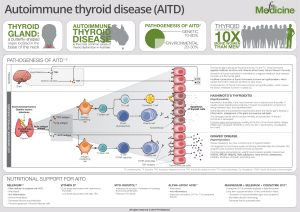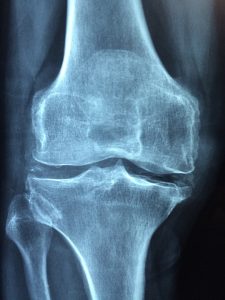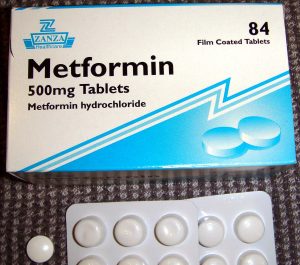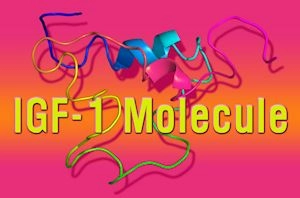Rheumatoid Arthritis is a common form of inflammation that impacts the lives of millions of men and women throughout the world. Globally, it's estimated that one percent of people suffer from auto-immune condition. No treatment is available that cures Rheumatoid Arthritis, though some therapeutic options improve patient mobility, pain management, and outcomes.

Searching for Relief from Rheumatoid Arthritis
Rheumatoid Arthritis is characterized by the inflammation of the synovial fluid around joints, which provides lubrication for movement, and it also causes progressive degeneration of joints.
Currently, there are three types of medication that are used to relieve the symptoms of Rheumatoid Arthritis: NSAIDs, DMARDs, and Glucocorticoids.
Glucocorticoids provide fast and immediate relief but become dangerous when used long- term. Non-steroidal anti-inflammatories are very helpful for stiffness and joint pain but can lead to side effects such as high blood pressure, ulcers, and heartburn, not to mention liver/kidney issues.
term. Non-steroidal anti-inflammatories are very helpful for stiffness and joint pain but can lead to side effects such as high blood pressure, ulcers, and heartburn, not to mention liver/kidney issues.
Disease-modifying anti-rheumatic drugs are prescribed to block inflammation but can lead to various side effects depending upon the specific medication.
One commonly prescribed DMARD is methotrexate, which inhibits the proliferation of cytokines in the joints but can lead to fatigue, ulcers, and nausea. Methotrexate can also deplete bone marrow and be harmful to the kidneys and liver.
Researchers are working to create more effective DMARDs which target inflammatory  responses in a more targeted way that offers more relief with less risk.
responses in a more targeted way that offers more relief with less risk.
Still, these new biological DMARDs have problems of their own that must be overcome.
Could Stem Cell Treatments Offer Safe Relief for Rheumatoid Arthritis Patients?
There is immense promise in Stem Cell treatments to treat a wide variety of different health issues. Stem Cell research is rapidly advancing, but the field is still in its relative infancy.
Mesenchymal Stem Cells (MSCs) are of particular interest with regard to Rheumatoid Arthritis. These stem cells inhabit the bone marrow and are used by the body to help develop and repair the skeletal system.
MSCs can develop into bone and cartilage cells, as well as fat and muscle cells. These cells can also home into areas of inflammation and immune response, giving them enormous promise as a treatment option for Rheumatoid Arthritis and other degenerative and inflammatory diseases.
Unfortunately, there are some problems associated with Mesenchymal Stem Cells as they are currently employed. Preliminary efforts to weaponize Mesenchymal Stem Cells have led to some success, but only around half of the patients respond to Stem Cell Therapy, and benefits have been short-lived.
There are factors that reduce the potency of MSCs in the joints. Oxidation reactions involved in Rheumatoid Arthritis are believed to impair the effectiveness of the therapeutic stem cells.
Furthermore, while MSCs can help regenerate cartilage, if not properly directed, they can also inhibit cartilage repair and lead to tumor development if misdirected.
This doesn't mean that Mesenchymal Stem Cells aren't a potential game-changer for Arthritis Treatment; it just means that scientists have more work to do to improve the effectiveness of the therapy.
Specifically, they have to ensure that these Stem Cells evolve into cartilage-producing cells and that they can provide their benefits even in the face of oxidative stress.
Using Peptides to Modify MSCs to Amplify Effectiveness for Rheumatoid Arthritis
Researchers are using nanotechnology to change the structure of therapeutic Mesenchymal Stem Cells to better suit their use as a treatment for Rheumatoid Arthritis. By altering the structure of MSCs, it's possible to enhance the ability of these cells to go where they are needed and provide better chances of success.
A recent study modified Mesenchymal Stem Cells with Copper and Manganese nanoparticles to stimulate the development of cartilage-producing cells.
Nanoparticles were infused with metformin to facilitate the modification. This strategy  significantly reduced joint inflammation in synovial tissue without degrading cartilage, providing significant symptom relief.
significantly reduced joint inflammation in synovial tissue without degrading cartilage, providing significant symptom relief.
It's hypothesized that this method of MSC nanomodification could also boost the effectiveness of other inflammatory/degenerative treatments. It's also believed that this advancement could speed up the healing process when utilizing stem cell therapy. Future breakthroughs could change the way that we treat diseases like Rheumatoid Arthritis.
Contact Us For A Fast And Professional Response


















